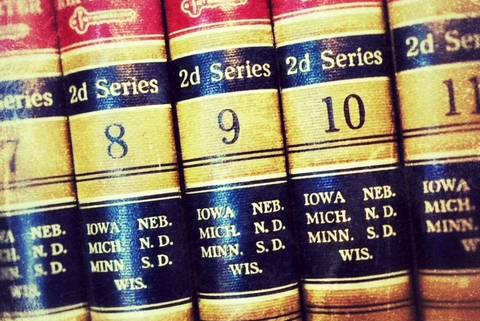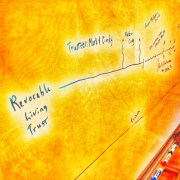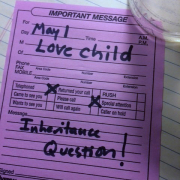Got Will?
What happens to my assets when I pass away with no will, no trust, no beneficiary planning?
It is well understood in our industry that there are many more folks out there without wills than folks with wills. The truth is that only a small percentage of individuals actually plan their estates. Very few people have done what they need to do to have their assets avoid probate when they pass away.
Knowing this, the law in Wisconsin offers a solution when a person passes away with probate assets and without a will. That solution is found in the statutory rules set forth in Wisconsin Statutes Chapter 852. The legal phrase for the rules used to determine who takes property in the absence of a will is called “Intestate Succession”. When you die without a will, this is where the court will go to make the decisions regarding who takes your assets.
Here is a rundown of the statute (warning… it can get a little funky to follow):
Basic rules for intestate succession
Step 1. Spouse/ Domestic Partner Take First. May have to split with kids of the decedent.
Per Chapter 852.01 (a): Any part of the net estate of a decedent that is not disposed of by will passes to the decedent’s surviving heirs as follows:
(a) To the spouse or domestic partner:
- If there are no surviving issue of the decedent, or if the surviving issue are all issue of the surviving spouse or surviving domestic partner and the decedent, the entire estate.
- If there are surviving issue one or more of whom are not issue of the surviving spouse or surviving domestic partner, one−half of decedent’s property other than the following property:
- The decedent’s interest in marital property.
- The decedent’s interest in property held equally and exclusively with the surviving spouse or surviving domestic partner as tenants in common.
Step 2. If no Spouse/ Domestic Partner; then we look downward in the lineage to children, grandchildren and so on. They are called “issue” in the statute. It goes “Per Stirpes” to the issue … which means that if your parent were to take a share but is not able to do so due to death before the decedent or disclaimer of the inheritance, then you and all of your living brothers and sisters step up to share equally in your parent’s share. See Chapter 852.01 (b):
(b) To the issue, per stirpes, the share of the estate not passing to the spouse or surviving domestic partner, under par. (a), or the entire estate if there is no surviving spouse or surviving domestic partner.
Step 3. Parents take if no Spouse/ Domestic Partner and no issue. See Chapter 852.01 (c):
(c) If there is no surviving spouse, surviving domestic partner, or issue, to the parents.
Step 4. Brothers and sisters and the issue of any deceased brother or sister per stirpes take the inheritance if there is no surviving spouse, surviving domestic partner, issue, or parent available. See Chapter 852.01 (d):
(d) If there is no surviving spouse, surviving domestic partner, issue, or parent, to the brothers and sisters and the issue of any deceased brother or sister per stirpes.
Step 5. It is rare it gets to this point, but the grandparents take the inheritance if there is no surviving spouse, surviving domestic partner, issue, parent, or issue of a parent. If not the Grandparents, then the Grandparents’ issue take under a 50/50 split mentioned in the statute. However, if one side or the other does not have heirs, then 100 percent goes to the side that does have heirs. See Chapter 852.01 (f) Note: yes… if you are wondering … the statute does skip a letter… do not ask. … :
(f) If there is no surviving spouse, surviving domestic partner, issue, parent, or issue of a parent, to the grandparents and their issue as follows:
- One−half to the maternal grandparents equally if both survive, or to the surviving maternal grandparent; if both maternal grandparents are deceased, to the issue of the maternal grandparents or either of them, per stirpes.
- One−half to the paternal relations in the same manner as to the maternal relations under subd. 1.
- If either the maternal side or the paternal side has no surviving grandparent or issue of a grandparent, the entire estate to the decedent’s relatives on the other side.
Summary
The good news here is that even if you do nothing, there is a plan in place for the distribution of your hard-earned assets after you die. The bad news is that the intestate succession plan may not be a plan you would approve of if you realized it was the plan in force for you.
There is no doubt that planning your estate is important. However, momentum against doing it is very strong. It is very hard to set aside the time and funds needed to do so. Most of our clients who do an estate plan tell us they are doing their plan for their heirs’ benefit or to make sure they are distributing their assets the way they want them to go, and not what the state sets up for them.
Whatever the reason, you should not hesitate to seize the moment and get this done. If only for the peace of mind in knowing the assets that you have worked so hard to accumulate will be distributed in the fashion you choose.








Leave a Reply
Want to join the discussion?Feel free to contribute!